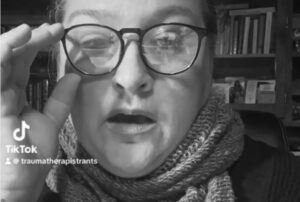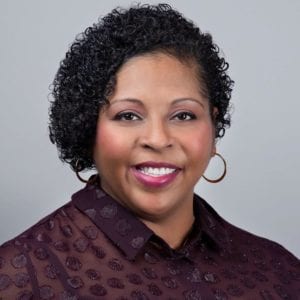This last year and a half has been an unending nightmare. I was “outed” as a person with a borderline personality disorder (BPD) by an angry classmate who I had trusted with this information. In the clinical psychology world this can destroy your career. What happens then to a clinical psychologist in training who outs you as a person who has been given a highly stigmatized mental health diagnosis? Nothing.
After what I thought was a minor disagreement, a colleague who has dealt with mental illness themselves and currently works with therapy clients, shared my mental health history and other personal information with other colleagues. Initially, I attempted to have an open discussion with this colleague. After several attempts at confronting this person, they became increasingly abusive. This colleague has since pushed me in the students’ lounge, consistently rolled their eyes when I speak in class, shut me out of conversations and given me the silent treatment. Furthermore, they have isolated me and ruined my professional relationship with others in the program. In short, I am being bullied.
BPD is a highly stigmatized diagnosis. Although I do not identify with it and do not consent to this diagnostic assignment, it was given to me as a teenager. I experienced multiple levels of ongoing abuse, neglect and self-harm. These experiences spilled over onto my psychiatric treatment. Due to the many mistreatments and constant dismissal of my experience within the psychiatric community, I now consider myself a recovered psychiatric survivor.
As clinical psychologists we are trained to practice five principal ethical principles: benevolence and nonmaleficence; fidelity and responsibility; integrity; justice; and respect for people’s rights and dignity. Yet, two years into a doctoral clinical psychology program I have heard many horrifying things about people with BPD. The most common label is that “borderlines” are manipulative, needy, irrational, difficult, clingy liars; and incapable of completing graduate school or even undergraduate. Another misconception is that people with self-harm scars must have BPD. Diagnoses are reductionist labels. Although for many people they provide an answer to their troubles, for many others they add to their troubles.
Going back to where I started, I was “outed” without consent. After six months I finally got fed up and told my advisor what was happening. They advised taking meaningful action against this person. A school appointed psychologist told me to “suck it up.” I had done that for many months, wanting to respect this person’s need to be angry and tolerating their continued abuse. Only one other colleague knew, but they remained close with the other colleague. I met with the program director, but there was not much they could do due to lack of evidence, and I did not want to disclose further details about my history, partly for fear of additional stigmatization.
I have enough going against me as it is for the clinical psychology field. I am a Latinx woman with little U.S. connection and Spanish as a first language. In addition, I have scars, the result of violence, abuse, self-harm and more. My scars can be seen and judged by anybody who pays close attention, which psychologists are trained to do. For the last year and a half, I have felt powerless. Some colleagues have caught up with the hostility but besides offering moral support have not done anything proactive to help stop the bullying colleague or be an ally.
Some colleagues have expressed that they do not want to fall at odds or be shunned by others, basically end up in the position I am in. What worries me is that not only myself, but our patients, are being put in these positions as well, dehumanized by the very professionals charged with helping them. The clinical psychology field seems to have an us (the healthy ones) versus them (the mentally ill) perspective. The field feeds and exists on the ideal that clinical psychology helps others heal, but in reality, they look suspiciously at those who have been able to heal, survived the system and have a desire to do the same for others. The field exists within the same authoritarian hierarchy as many other systems that perpetrate injustices. At one point a PhD student who disclosed their given diagnosis was told that by sharing that information they had created a “burden” for their colleagues. They mentioned how their mentor and “lab mates” had joked about their given diagnosis and how they felt the need to disclose their given diagnosis in order to make them stop. In addition, a historic lack of all expressions of diversity race, gender, cultures, economics, languages, sexual orientation and psychological experiences permeates the field to the detriment of the patients.
The ethical principles that rule clinical psychology are practiced as long as providers are the sane/normal ones and the patients are crazy and incapable. This has been further demonstrated by research on mental health provider stigma which may also take the form of prejudice and discrimination. For the last year and a half, I have felt isolated, betrayed, powerless and for the most part, defeated. I considered dropping out on multiple occasions. A quick Google search showed that there are not many clinical psychologists with lived experiences who are “out.” This made me wonder, how many of us are living in the shadows, quietly listening to others in our field making deprecating comments about people like us and being marginalized and bullied. Additionally, I wonder how “out” I actually am, how many people know and how will the labeling ultimately affect my career. These thoughts keep me up at night and I have debated many times whether or not to “officially” be out, and at least regain my narrative and speak out. Within our field it seems that labels or given diagnoses place a person within a box, context, or circumstance and the person’s personal experience are most often discredited and dismissed.
One thing they could say if I “come out” is “Here she goes, the manipulative needy woman, needing attention,” as psychologists have previously said about individuals with a given diagnosis of BPD. These are the same beliefs that maintain the status quo, that create systematic barriers for individuals with lived experiences to speak out, get help and recover. These are the same mechanisms which perpetuate abuse within our mental health system. The field needs to change, clinical psychologists need to be held accountable for their role in keeping the status quo, and maintaining inequalities. In my opinion, clinical psychologists need to be challenged from the minute training starts, any training.
Individuals with lived experience in mental illness should be at the forefront of this change and leading these conversations, we are the ones who have been through the system. Even if our perspectives of how the mental health system should be revolutionized digress, they matter. Instead the field of clinical psychology, which often promotes healing and recovery, ironically keeps us marginalized as being “unable to recover.” Moreover, from what I know, many schools do not ask that clinical psychologists attend therapy themselves and for that reason many have never been in the patient’s role. Is this not hypocritical and counterintuitive? I am calling my field out for its hypocrisy and continued dismissal of marginalized voices. The field already exists within a Westernized white developed bubble and it is time to put a stop to all of this. Simultaneously, I am calling out my colleagues and future clinical psychologists for their continued participation in these practices. As it is, the clinical psychology field continues to promote and monetize the dehumanization of mentally ill people.
When will the dehumanization of people with lived experiences in mental illness stop?















3 Responses
Sincerely thanks!
I owe you a great deal
This struck me in a way I might have some difficulty describing… I haven’t thought about it in a long time. I was diagnosed with “BPD” Borderline Personality Disorder, 6 years into my military career, as I was, I was separating from service actually. It felt devastating! I mean I had achieved everything set before me, with as much Grace and enthusiasm as I could muster. In other words, I thought I was a good soldier, a good nurse, a somewhat decent teacher, and mentor toward the younger or less experienced soldiers in my charge. All of that on top of being a wife and mother, which all took a back seat to my career. It is what is expected of you in the military.
Your article reminded me of how humbling, actually humiliating, such a diagnosis can be. More than likely completely inaccurate as well. I mean I’ve worked as a nurse within the mental health community, and I don’t believe that this diagnosis is an accurate one for me personally. I could be wrong. But, because I had a boat load of therapy prior to going into the service, and had to see a psychiatrist before I was ‘allowed’ to join the US Military, I don’t believe I escaped the gauntlet only to have some psychiatrist after a couple of sessions decide that I what, went un-diagnosed for my entire life, but he put it together in record time!
Thank you so much for putting yourself out there, to allow folks like me to see that those who are in the opposite chair during therapy might have feet of clay, to say the least…